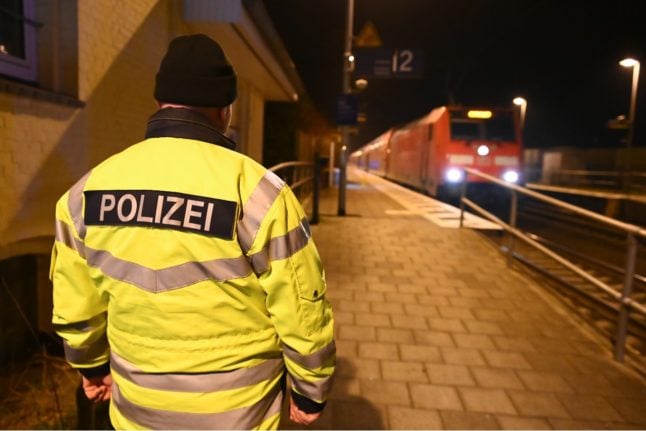German prosecutors said Thursday there was no indication of a terrorist motive in a knife attack on a train that killed two teenagers and wounded several other passengers.
A 33-year-old suspect named only as Ibrahim A., a stateless man of Palestinian origin, has been detained over Wednesday’s stabbing spree on the route between the northern cities of Hamburg and Kiel.
“There are no indications of a terrorist background,” Peter Mueller-Rakow, a spokesman for the local prosecutor’s office, told AFP.
The investigation into the attack and the suspect’s history was ongoing, he added.
A 17-year-old girl and a 19-year-old man were killed in the attack and five people injured, Sabine Sütterlin-Waack, the interior minister for Schleswig-Holstein state, told journalists.
Authorities had previously given the girl’s age as 16 and said seven people were injured.
Two of the wounded have life-threatening injuries and are still in hospital, Suetterlin-Waack said.
The two teenagers who were killed knew each other, she added.
The suspect also sustained minor injuries, but it was unclear how.
Investigators found blood in four carriages of the train, Sütterlin-Waack said.
Passengers helped overpower the suspect and restrained him until police detained him at a railway station in the town of Brokstedt.
“Due to the very dynamic course of the crime, a lot is still unclear,” Suetterlin-Waack said.
The suspect, of no fixed abode, had only recently been released from prison in connection with an assault case, said police.
He arrived in Germany 2014 and had several previous convictions, including for violent crimes, Sütterlin-Waack said.
READ ALSO: Two dead in knife attack on train in northern Germany




 Please whitelist us to continue reading.
Please whitelist us to continue reading.
Member comments